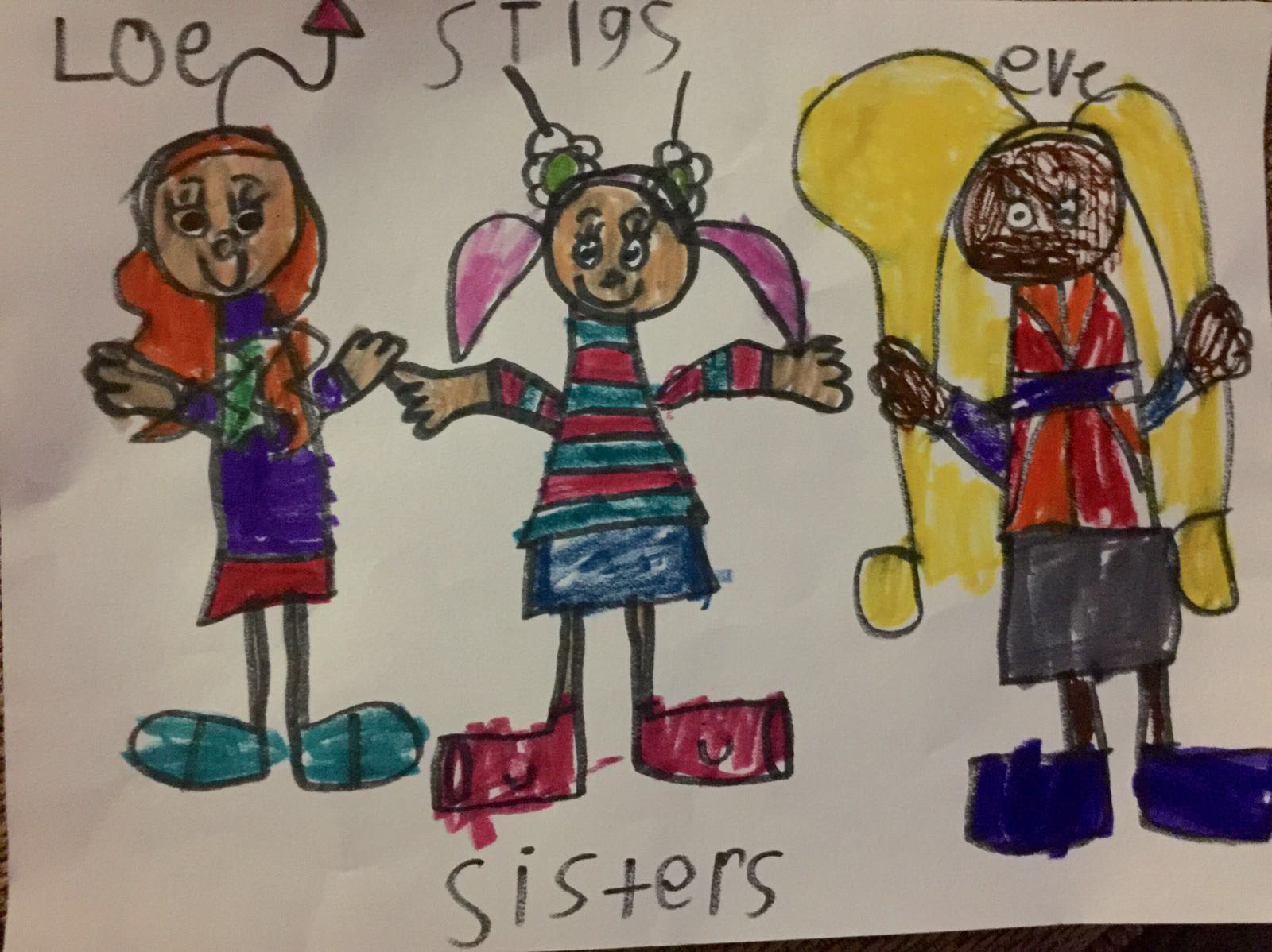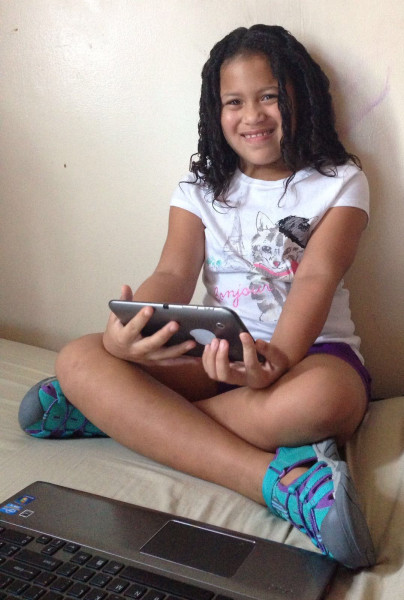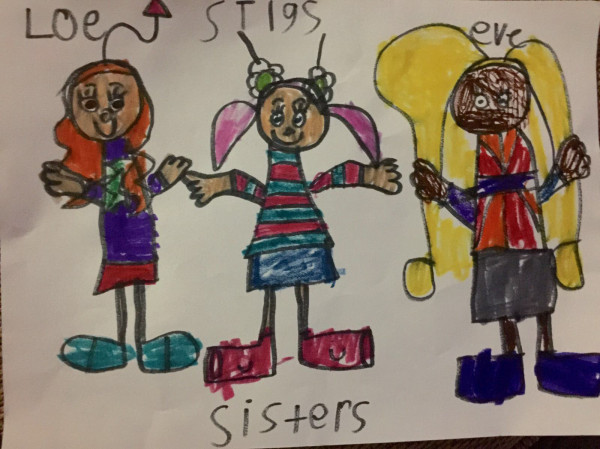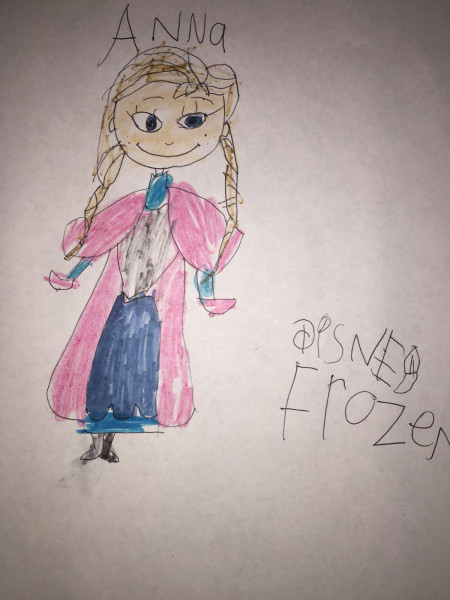A fire on February 23rd at a Lodge house, where two adult autistic brothers had to be rescued by alert neighbours has underlined the need for early intervention in diagnosing the disorder.
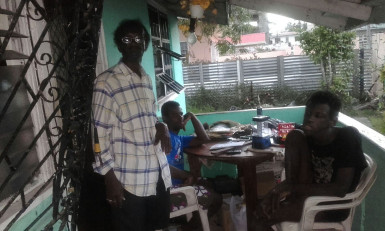
The electrical fire ravaged the kitchen area of the Lodge Housing Scheme home, putting Hosea and Irvin Ferrell, who are 22-years old and 24-years old respectively, in danger. The fire reportedly started from a hot plate that had been plugged in at the time. It was related that the brothers did not call for help, but rather, it was the vigilance of neighbours, who were home and saw the smoke emanating from the building, that saved their lives and the house.
Their father, Joseph Ferrell, does not think the brothers can recognise danger. He said the older brother, Irvin, on more than one occasion, stepped into traffic without paying attention to where he was going.
Neither of them communicate. They do not speak, and did not pick up on any sign language taught to them during their time at a special school. They are, however, able to feed, bathe and dress themselves.
The Ferrell brothers were never subject to a screening to diagnose whether they were autistic. It was the opinion of a teacher from the Cyril Potter College of Education (CPCE), who was suggested by a close friend of Mr. Ferrell that gave a name to their condition.
This suggestion did not come until their adolescence, after they had left the learning institution in their early teenaged years. One of the brothers had spent two weeks at the St. Sidwell’s Primary School before being transferred to the David Rose School for Handicapped Children. They both entered the facility shortly after completing their nursery education but were taken out eventually because of financial constraints.
Although they are legally adults, mentally, the Ferrell boys are not fully developed, and being raised by a single-parent for half of their lives means that their opportunities are limited.
Mr. Ferrell has been parenting his sons on his own for the past ten years after their mother left the country. A security guard on a tight budget, he leaves them on their own as he goes off to work six days a week at a gas station.
Like most security guards, he is placed on a shift system, meaning his schedule from week to week may vary. Shifts are rotated from 6am-2pm, 2pm-10pm and 10pm to 6am. He had been working the morning shift on the day of the fire.
The elder Ferrell said that on a typical day, he rises at 4.45am and wakes the boys up to eat the food he would have prepared the night before. He related that if he does not do so, they will not eat on their own, explaining that many days he returns to find that food has gone uneaten.
Once a month, on his day off, he spends the better half of his day standing in line at the night shelter to receive public assistance in the sum of $7,300 from the Ministry of Social Protection.
“It’s not expected that a man can mind two children, but a child has two parents,” he said, noting that many express surprise at the fact that he continues to raise his children alone.
Early intervention
“Somebody asked my opinion, they’re like, `Sir, what would they do?’ Because these boys, when the fire started, they were there, they didn’t scream, they didn’t shout or anything…these children, they need to be taught what danger is. But when they got so old and you haven’t worked with them when they were young it’s difficult.”
That was the opinion expressed by Gordon Roberts, Head of the Autism Department at the David Rose School, referring to Hosea and Irvin.
Roberts is very familiar with the plight of the Ferrell family. Although the boys are now too old to attend the David Rose school, which caters for individuals up to the age of 21, they were once students of the institution for about eight years. Roberts contended that back in those days, the teachers assigned to teach special needs classes were not adequately trained in special education.
“They came here, teachers they just were trained in CPCE and they got placed here. Some of the teachers weren’t even trained back in the days but they got placed in a school to work with special needs children and they don’t know what to do. So the children, they just came to a school that was meant to just have them here, categorised and then grouped together and that’s it. So they didn’t receive the necessary attention.”
Mr. Ferrell said he has doubts that his sons experienced any improvement in behaviour during the time spent at the school, and noted that his younger son, Hosea, seems to get worse the older he gets.
Roberts stated that since that time, David Rose has come a long way, having established its Autism Unit in September, 2015. The unit is open to individuals between the ages of three and 21 and teaching is tailored for each student, who is taught from a curriculum adapted specifically for them when they enter the institution.
He emphasised the importance of early childhood development for individuals with autism, stating that they possess a developmental disability, which will be present for the rest of their lives. It is therefore important that they be equipped with basic life skills, such as being able to eat, take a shower and put on their clothing on their own. He explained that oftentimes, the parents of autistic children can be overprotective, leading to the child developing a learning dependency.
Sorsha, a success story
Eleven-year-old Sorsha Williams is described as exceptional by her mother, Karen. Diagnosed with autism in 2012, she has come a long way from not being able to speak at all to being an excellent reader. Added to that, Sorsha takes part in swimming at the Special Olympics, does math, is described as an awesome singer by her mother, can play the piano and loves drawing. She uses art as an outlet to express emotions.
Born September 11, 2004, Sorsha, who has a mild case of autism, shares a birthday with her older sister, and is the second of two girls.
Sorsha’s mom, Karen Williams, is the co-founder of the Greenheart Foundation, a charitable organisation which seeks to provide special education to autistic students. The school was founded by Karen along with her husband Eric Williams, after they found they could not get the attention required for their daughter.
Karen related that Sorsha was asked to leave two separate private institutions during her early years as they could not understand her behaviour. Karen, who now has a degree in Psychology, was not yet aware of what autism was, and it was not until she returned back home from a trip overseas in 2008 that she heard the term being used on The Oprah Show.
Sorsha stayed home for a year in 2009 after being taken out of school (during which time she attended therapy sessions) and the Greenheart Foundation was started in September, 2010. The school, which caters for children up to the age of 12-years-old and currently has 25 children enrolled, runs on the donations of friends, family and parents.
“I suffered for years here until I took my child away. For me, for my child to have somewhere to go, as a Guyanese citizen, I had to find a place to put my child. Imagine I had to open something for my own child? Plus other persons now getting to benefit,” Karen stated.
Although Sorsha is now exhibiting brilliant qualities, it had not always been this way. According to Karen, her daughter’s behaviour and development took flight after they left for the United States in 2012. Although both her parents are Guyanese, she is an American-born citizen, and as such, receives the benefits of being a special needs child from the State. Sorsha has had an individual education programme (IEP) developed for her and her parents receive regular progress reports on her development.
Sorsha had developed on par up until her 18th month, and then began drawing away, a phenomenon referred to as regression. She was nonverbal for nearly six years before she began uttering any words, a success that could be owed to speech therapy.
“We take our children for granted in a sense that…you wanna hear your child say mom or dad or whatever, I had to actually pull it out of her, she never bonded with me. Some of them don’t bond, they don’t want you to hold them, they have sensory problems…So I’m trying to hug her and she’s pushing me away as a baby, or crying excessively or throwing a tantrum or very over the excess hyperactivity. Hearing her for the first time, maybe 5 ½ going on 6, for a mom it’s like I won millions.”
Karen noted that for parents, if any signs of autism become noticeable, it is important that they intervene as early as necessary because those early years of development cannot be regained.
“If you leave them in that environment—they bring them when they meet 15 and 20…in that time how many years are lost? With my child we got early intervention because the minute I found out she was autistic, we started working on her.”
She related, quite proudly, that in the four years they have been overseas, Sorsha has improved immensely. She shared that while two years ago she could read quite fluently, she had possessed no comprehension skills. Today though, she reports that Sorsha does quite well in both areas.
“In four years my daughter is doing awesome. Reading, comprehension, she swims—you see that medal around her neck? My daughter swims, they have Special Olympics, and I cheer her on. I want my daughter to be self-sufficient, I don’t want people to sneer at her. I want her to get a job like you. I want big things and dreams for my children…Sorsha is an example for any parent who has doubts, any social worker who has doubts…we’re looking for help, and not just autism month.”
Karen expressed the view that in Guyanese society, parents are offended by their children being labelled special needs and go into denial when this is the case, causing the child to suffer. She urges them to instead, find a way to strategise teaching their child, pointing out that if they do not fight for them then no one will.
“I don’t treat my child as a special needs child, I treat my child like any one of my children… I’m not training my child to be a burden, I want my child to be the best she can, the highest potential she can meet. Because I don’t know how long I’m around and I’m not treating her that way because she’s my child, I’m treating her that way because she will enter society and not everybody in society will be that understanding. They need education to have that understanding, and if they don’t have it, my child could actually lose her life.”
Karen stated that she would like to see the Government of Guyana take a more solid approach to helping those who are autistic by building a unified unit. She believes there is room for collaboration for the training of specialists, who can then be dispersed across the country to teach special education.
ASD
When it comes to Autism Spectrum Disorders (ASD), early intervention is key to ensuring that individuals have the best chance of meeting their potential.
Those diagnosed with autism, a developmental disability, may be characterised by the inability to communicate verbally and nonverbally, to form relationships with others, and to interact in a way that is socially acceptable.
In Guyana, there are few organisations that are dedicated to educating persons suspected to be autistic. The word “suspected” is used, because there is currently no facility available where a full diagnosis can be carried out on individuals believed to have the disorder.
According to the US Centers for Disease Control (CDC), ASD is diagnosed using a two-step process, the first being a developmental screening, which is carried out by a doctor, and during which they evaluate whether the child is learning basic skills at the pace that they should. The second stage, a Comprehensive Diagnostic Evaluation, is where a team of experts, usually including Psychologists, Neurologists, Speech Therapists and Paediatricians examine the child’s behaviour and development, and in some cases will review their genetic history and perform other medical tests. In Guyana, the process ends at stage one.
There is one governmental organisation that caters for children with autism – the David Rose School which provides education to children into early adulthood. Aside from the David Rose School, the Gifted Hands Learning Centre, the Step-by-Step Foundation and the Greenheart Foundation all address autism and early childhood development.
